sustain.build.repeat.
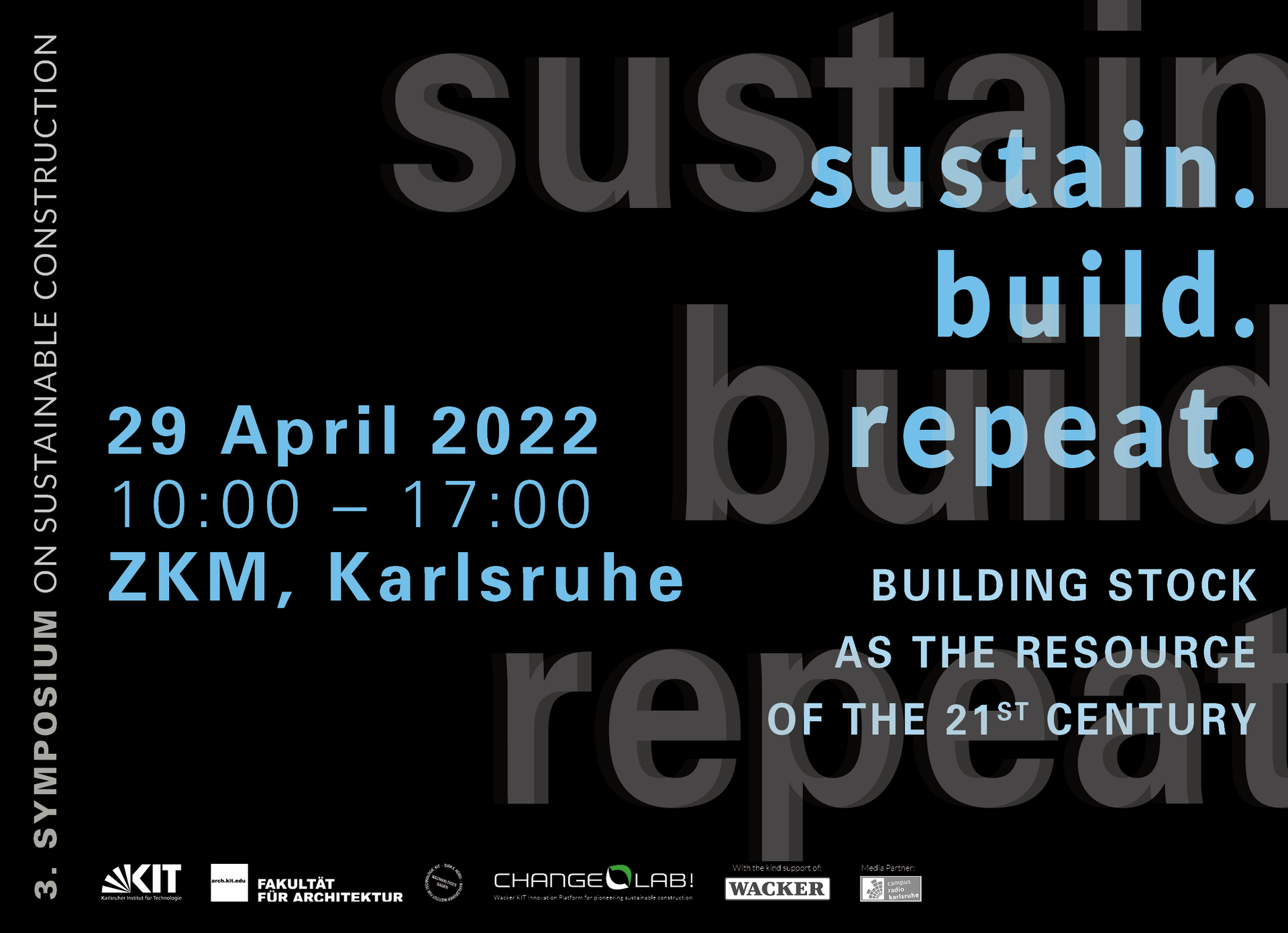
3. Symposium on Sustainable Construction
29 April 2022 | 10:00 – 17:00
ZKM Karlsruhe and live stream
The symposium sustain.build.repeat. is dedicated to the resource of the 21st century: our building stock. With growing waste volumes and ever scarcer raw materials, careless building demolitions and replacements must be avoided. Instead, existing buildings should be converted and rebuilt, components removed, reused and reused again.
The linear system geared towards the demolition of buildings corresponds neither to an economic nor to an ecological handling of the resources at our disposal. The grey energy stored in the materials used, in transport and in construction, as well as the cultural and social value of architecture are lost. It is therefore important to think in cycles and to preserve as much of the existing building stock as possible on the premise of resource- and climate-friendly architecture: on the one hand as a changeable space in which various usage scenarios are possible, and on the other hand as a material depot, secondary raw material supplier and building material store.
The material, economic and social value of the building stock can be preserved through the cycle-compatible conversion and recurring transformation of the building stock. The creative re-use, re-utilisation and co-utilisation of existing spaces of opportunity creates new social and architectural challenges. Thus, the spatial complexity, the appropriation of architecture by society and its adaptability to future needs can become unique design tools.
In this symposium, representatives from science and industry, research and practice will present ideas, strategies and impulses on how the ecological necessity of reconstruction and transformation of the existing can become an enriching element of a caring, needs-oriented and value-preserving architecture in ecological balance. It offers the opportunity for joint discussion and exchange on the significance and value of the existing for the architecture of today and tomorrow.
In addition to the lectures a thematic introduction will be given by Prof. Dirk Hebel, Professor of Sustainable Construction and Dean of the KIT Department of Architecture, the panel discussions between the lectures will be moderated by Monica Tusinean. In the foyer in front of the Medientheater, there will be an accompanying exhibition of student works that deal with the preservation of existing stock.
The symposium is part of ChangeLab, an innovation platform for sustainability in the building industry, sponsored by Wacker Chemie AG (https://changelab.exchange). The event on 29 April 2022 is organised by the Professorship of Sustainable Construction the KIT Faculty of Architecture and will be part of the education programme of the Baden-Württemberg Chamber of Architects (AKBW registration number: 2022-151695-0001).
The event is being held with the kind support of Wacker Chemie AG.
Free admission to the live event at the ZKM Karlsruhe.
Please register for the live event via the online form.
Live stream openly available on changelab.exchange
Featured Speakers
10:30:
Prof. Tina Kammer
InteriorPark Stuttgart and IU International University
Precious Re:Built
Why is transforming our built environment so important? It is important to realize the scale of impact that our professional activities have on the climate. Deep changes across the design, construction, use and reuse of buildings and infrastructure are required if we are to have any chance of providing a sustainable environment for our future.
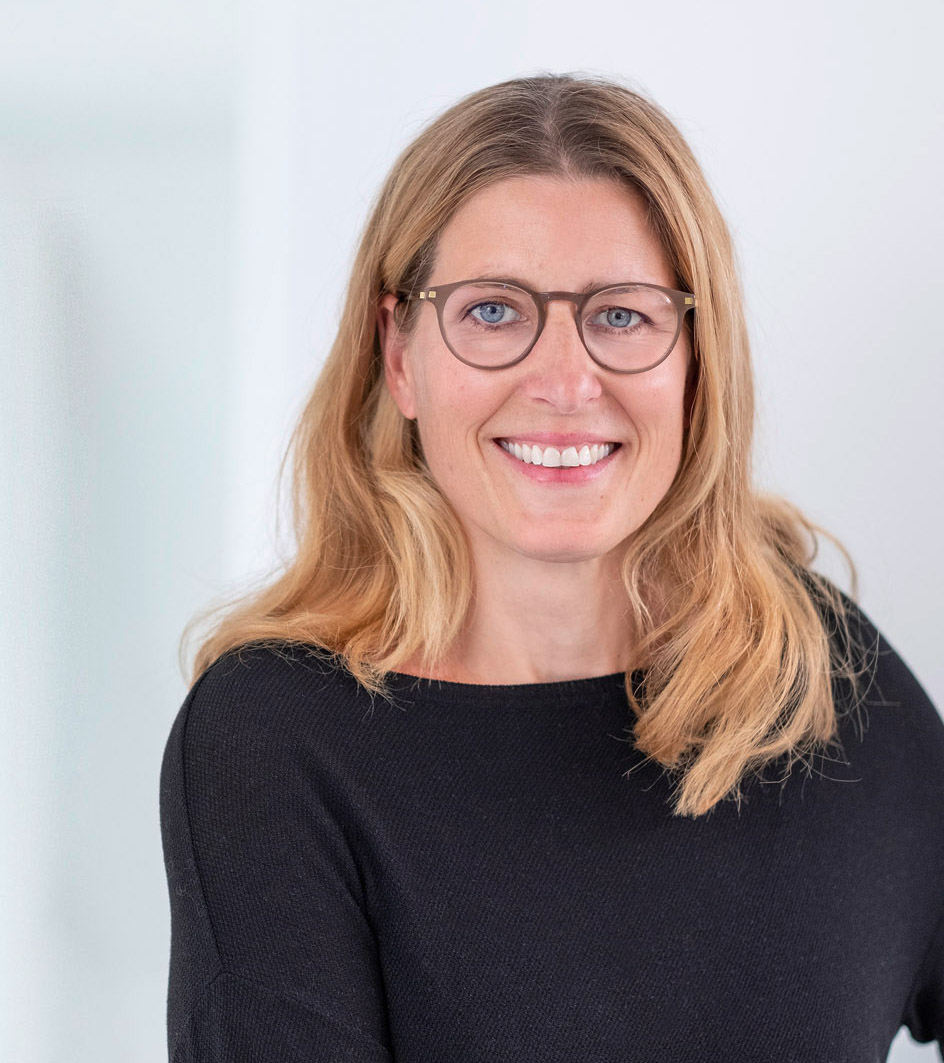
Tina Kammer has been following developments in the field of sustainability since the 1980s. After working as a cabinetmaker, architect in London and on international projects, she co-founded InteriorPark. At lectures, in consultations, workshops and juries, she promotes sustainable developments. Her studio InteriorPark. specialises in sustainable architecture and design concepts. Since 2022, she has been teaching architecture for sustainable construction as a professor at the IU International University.
11:00:
Dipl. Ing. Architect Kerstin Müller
Baubüro in situ AG and Zirkular GmbH Basel
Intermediate Tones
The preservation of existing buildings and the sensitive further construction represent the highest form of circular economy. However, it is not always possible to preserve existing buildings. The composition of dismantled, life-experienced components into a new building challenges our common ideas of aesthetics. Circular architecture shows intermediate tones in the question of demolition or preservation, black or white.
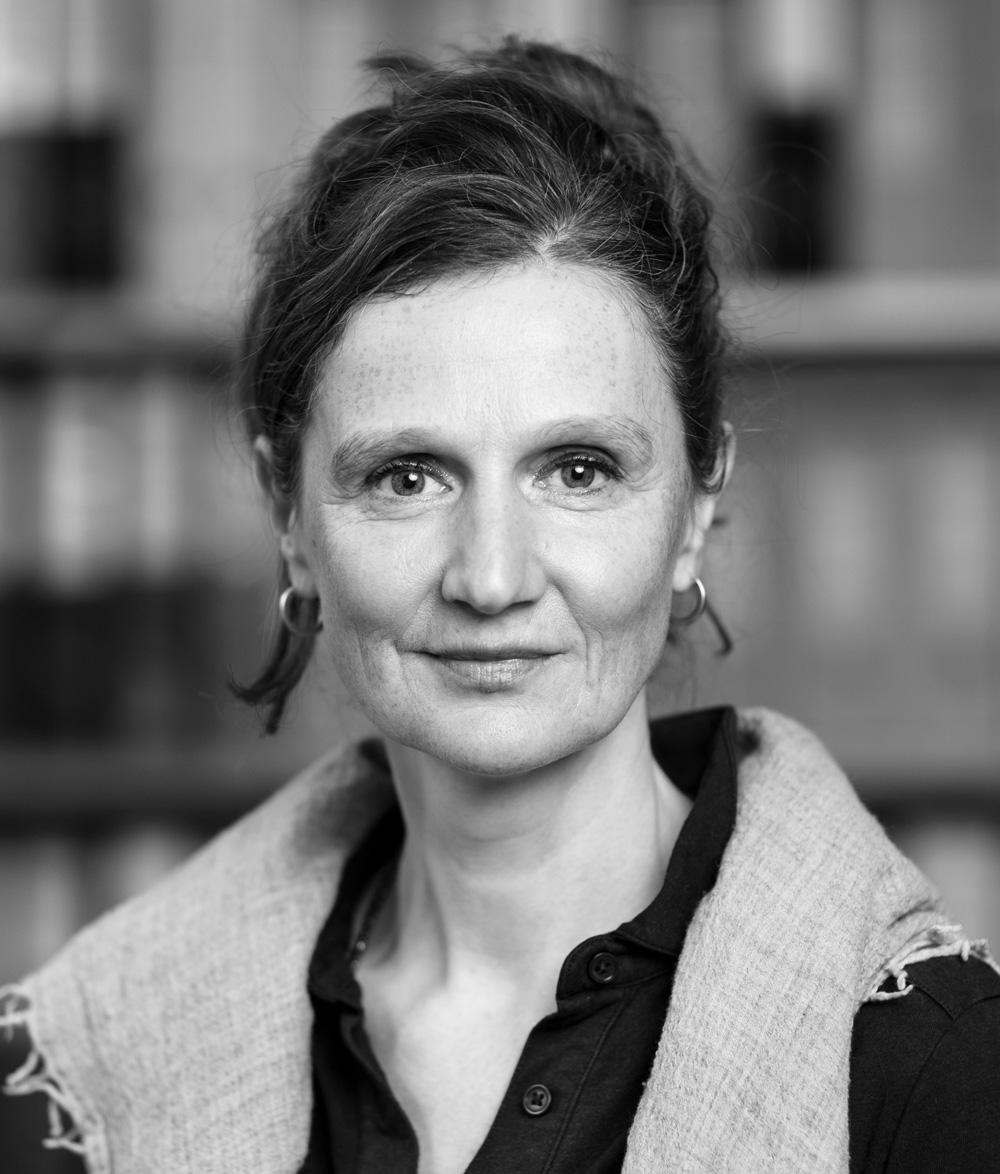
Kerstin Müller is an architect and member of the management of Baubüro in situ AG, Basel. She is the managing director of the newly founded Zirkular GmbH - Specialist planning for circular economy and reuse in the construction sector. In 2020, she was elected co-president of the association cirkla, the Swiss Association for Reuse in the Construction Sector. Müller represents the Baden-Württemberg Chamber of Architects on the climate advisory board of the city of Lörrach and in the „Climate Energy Sustainability“ strategy group.
11:30:
Prof. Thomas Auer
Transsolar Stuttgart and TU München
Comfort strategies for flexibility and longevity
Comfort strategies became a decisive parameter for a possible retrofit of buildings. Lacking flexibility of mechanical systems and/or lacking comfort often make a renovation or retrofit expensive and sometimes even impossible. This can be related to spatial issues such as mechanical rooms and shafts. Often a horizontal distribution of systems lead to insufficient height of spaces. Particularly the post war building stock doesn’t provide the necessary flexibility. Lacking floor to floor height, combined with perceived inacceptable comfort conditions and often underutilized land use are main arguments for a complete replacement of buildings. The architectural aesthetic of that time doesn’t cause any public nor heritage resistance. Before design for circular material use it is essential to re-think the current economically and technology driven building design towards an architecture, which provides true program flexibility based on robust comfort strategies.
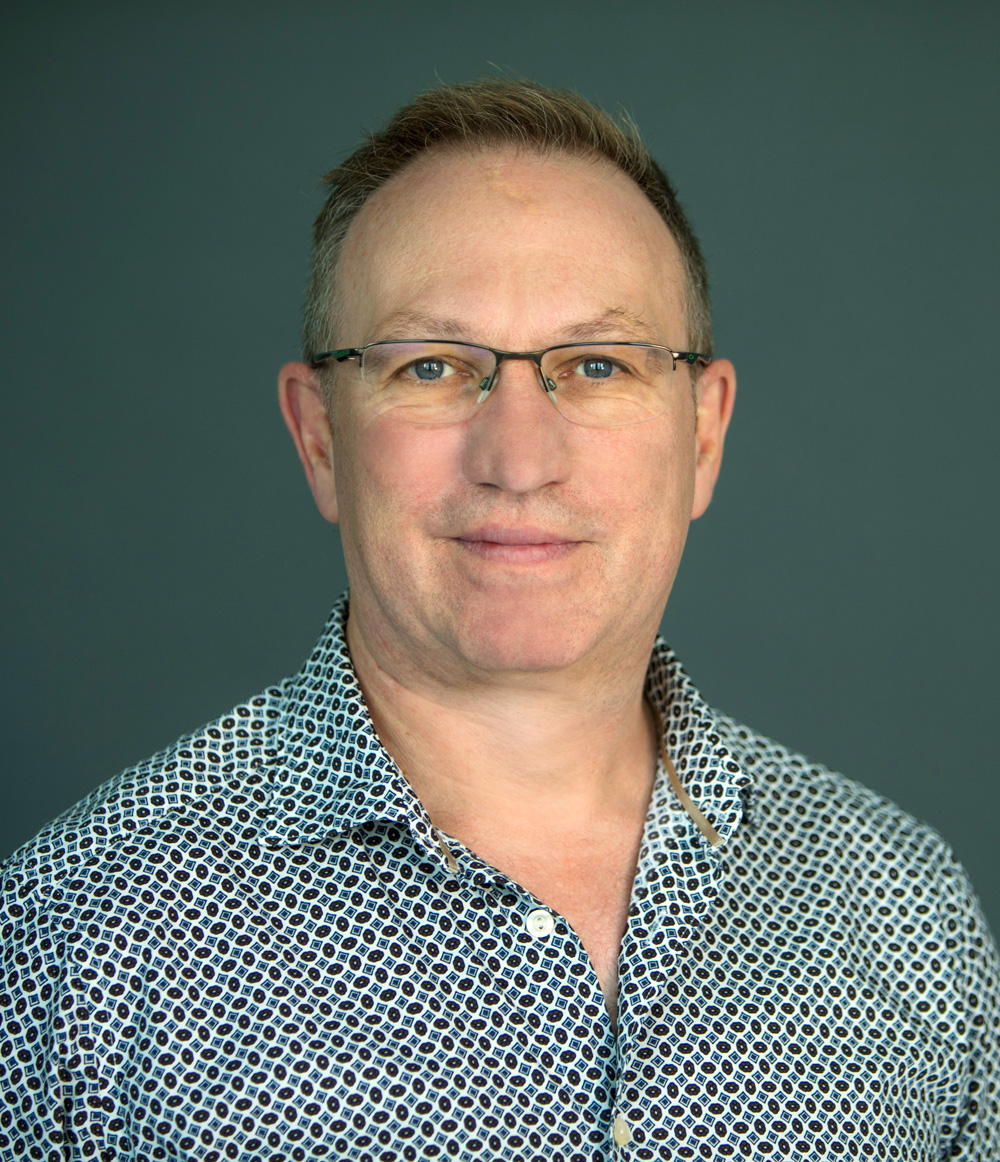
Thomas Auer is managing director of Transsolar, Stuttgart. The Climate Engineering practice has received international attention over the last three decades and is working on all scales from single buildings to urban neighborhoods. As Professor and Chair of Building Technology and Climate Responsive Design at the Department of Architecture of TU Munich he focuses on a holistic design approach. For buildings and cities, it is crucial to recognize the sustainability goals of the EU as well as the reduction of substantial CO2 emissions in the building sector, as defining parameter. Thomas and Transsolar have always advocated an understanding of energy efficiency that goes beyond technology. They develop holistic concepts that incorporate the urban and regional scale. The overall objective of this approach is to create maximum comfort in the interior as well as in the exterior of the built environment while minimizing the use of resources at the same time.
14:00:
Dipl. Kfm. Daniel Fuhrhop
Carl von Ossietzky Universität Oldenburg
The hidden living space. A response to housing shortages and climate crisis.
In order to create living space, the Ampelkoalition relies primarily on new construction - but the goal of 400,000 newly built apartments per year would correspond to an increase in greenhouse gases by eight million to twenty-five million tons of CO2. We should therefore create more apartments through conversion, as well as without building: there is already living space that we just have to find. Social programs for owners primarily help older people who live alone in the house and, as a „side effect“, create space for those who urgently need housing. This is how living space is created without harming the climate, and on top of that, finding living space means connecting people.
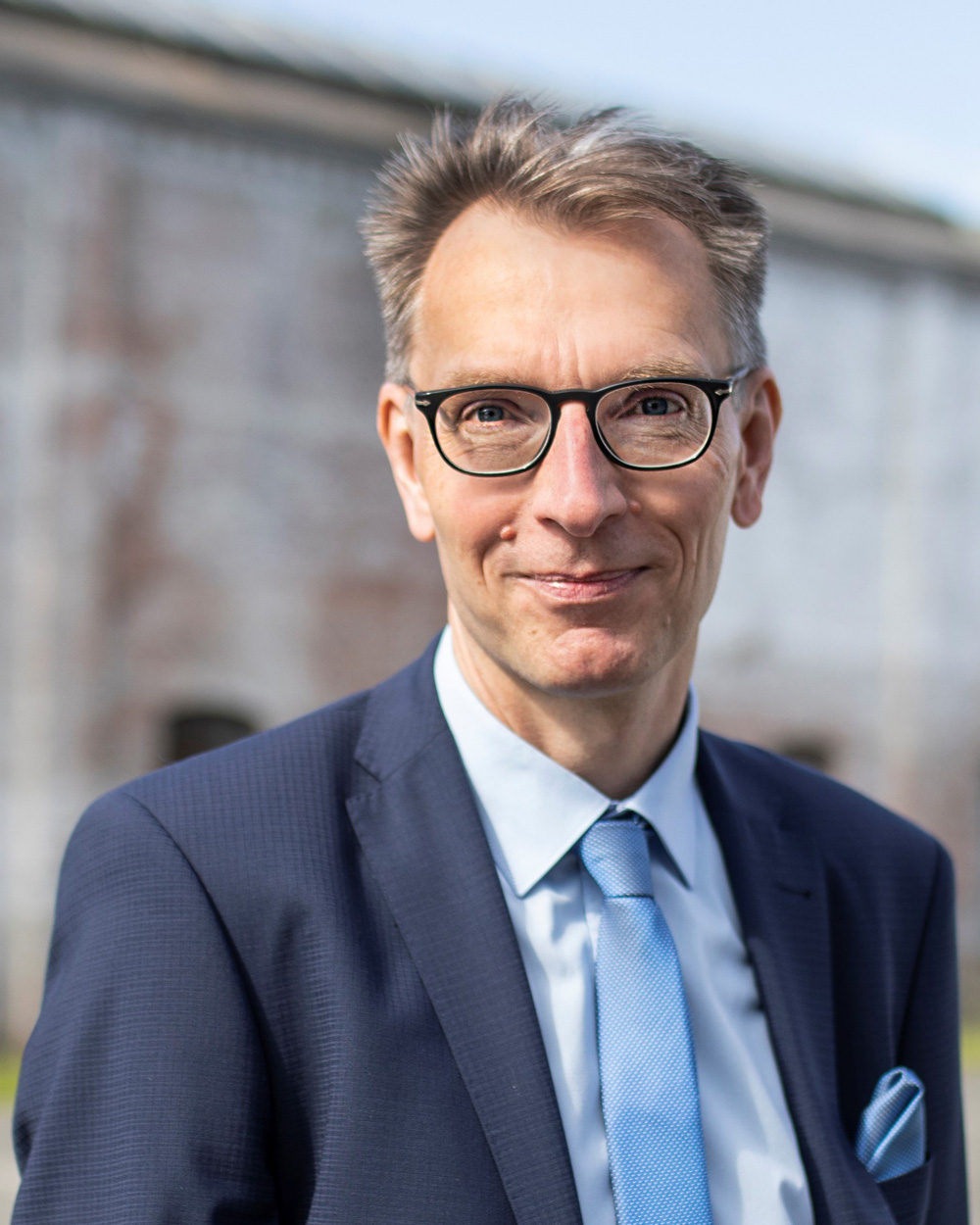
Daniel Fuhrhop works as an economist at the University of Oldenburg on how to advise owners of old buildings, thereby finding living space and putting it to new use. As a non-fiction author, he wrote the pamphlet „Verbietet das Bauen!“ and the guidebook „Einfach anders wohnen“. Previously, he was an entrepreneur for fifteen years, founding and managing Stadtwandel Verlag. In 2021 he ran for mayor of Oldenburg and achieved 46% in the run-off election. He will live in Potsdam from 2022.
14:30:
M.Sc. Dominik Campanella
restado and concular Stuttgart
Re-Use now - How building components can already be reused today
There is currently a discussion about the reuse of building materials. This is already possible today. On the one hand, this lecture would like to look at the current state of affairs in business and politics and which future regulations will influence the market. On the basis of projects carried out by Concular, it should be shown that it is already possible to bring back materials in the building sector today.
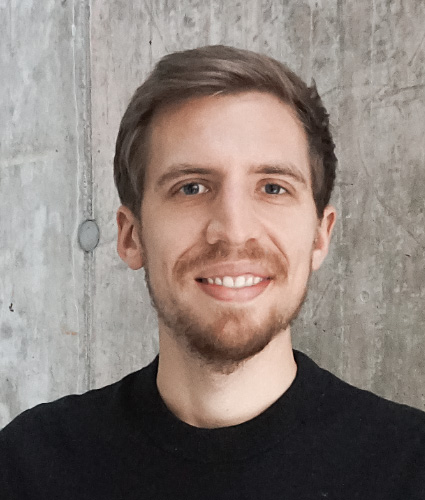
Dominik Campanella studied computer science and management at HEC Paris and then worked for Google in Paris, Zurich, London and Berlin for several years. In 2012, he founded restado.de - today the largest marketplace for reclaimed building materials in Europe. Since 2020, the co-founder and CEO of Concular. A digital platform that enables the recovery of building materials. He is a member of the Leadership Group of the EU Commission for Circular Economy and on the expert board of the DGNB.
15:00:
Mag. Arch. Roland Gruber
nonconform Wien
From the edge to the middle! How the transformation of city centers could succeed
A revival of the rural regions needs programmatic content, how the empty and desolate city centers and villages are to be filled with life again. Sustainable ideas for your renaissance can only be developed and tackled together with the residents. More and more villages and towns no longer have a centre, life takes place on the outskirts. This donut effect is not only ruining cities for future generations: public meeting places are losing their meaning and places their identity and attractiveness. Courageous actors from politics, administration, business and civil society who are willing to think and implement new things in a participatory way with the citizens are needed to counteract the continuing silence of the town and village centres. The question arises as to how the desolate center can be filled with life again. The central aspects for this are to be developed in a mutually supporting network: New forms of housing, communal meeting places for social cohesion, local supply of goods and culture, networked and flexibly usable mobility and an economy that sets regional and innovative impulses. These are major issues that require sustainable answers in order to achieve the vital diversification for the country: a diversity of young and old, of families and singles, of social milieus and cultural ideas.
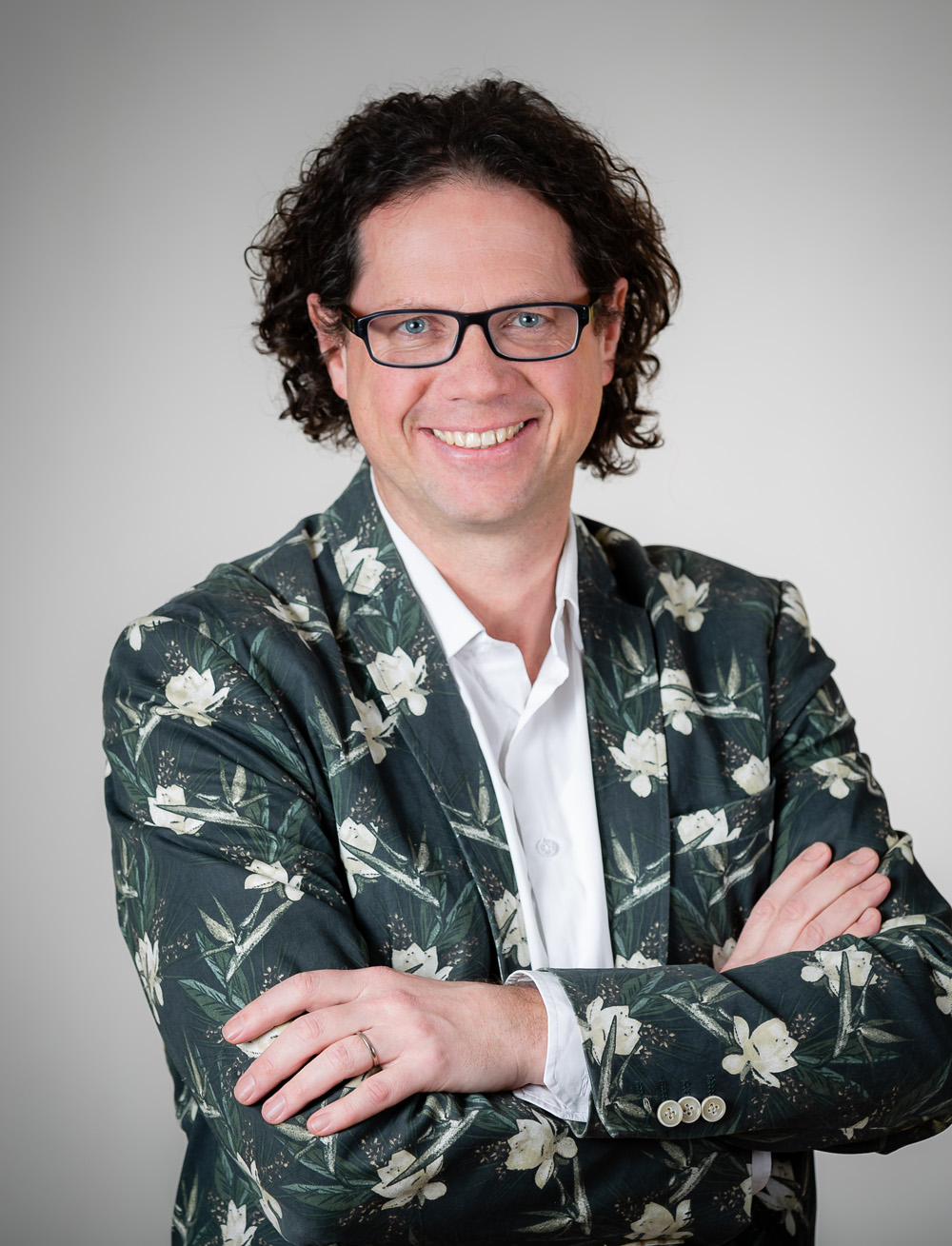
Roland Gruber has been co-founder, partner and managing director of nonconform since 1999, focusing on architecture and future spatial development of municipalities, cities and companies. He is also the initiator and curator of the Vacancy Conference and co-founder of LandLuft, an association for the promotion of building culture in rural areas. He is also co-founder of RURASMUS, a European scholarship with the aim of bringing young people to the countryside. Since 2021, he has also been vice mayor of the Austrian municipality of Moosburg.
16:15:
Philippe Block
Block Research Group ETH Zürich and NCCR - Digital Fabrication
Keynote: Disrupting concrete construction
Concrete does not want to be a beam, it wants to be an arch. Reintroducing funicular geometry for spanning space in concrete makes it possible to significantly reduce the amount of material needed, but also, because of the very low stresses, build with lesser emitting materials. Recent developments in computational design and engineering methods and construction-scale digital fabrication now allow us to introduce concrete as an extremely sustainable solution for common structural elements like a floor “slabs” or a arched bridges. This lecture will introduce how we can disrupt concrete construction: lightweight, extremely low embodied emissions, no embedded reinforcement steel, using very little resources and made largely out of construction demolition waste, fire resistant, providing thermal mass, acoustically performant, dry-assembled prefab, so easily demountable and reusable as structural components or entirely and easily recyclable at the end of its life, available at scale and globally, and economic. Sounds too good to be true?
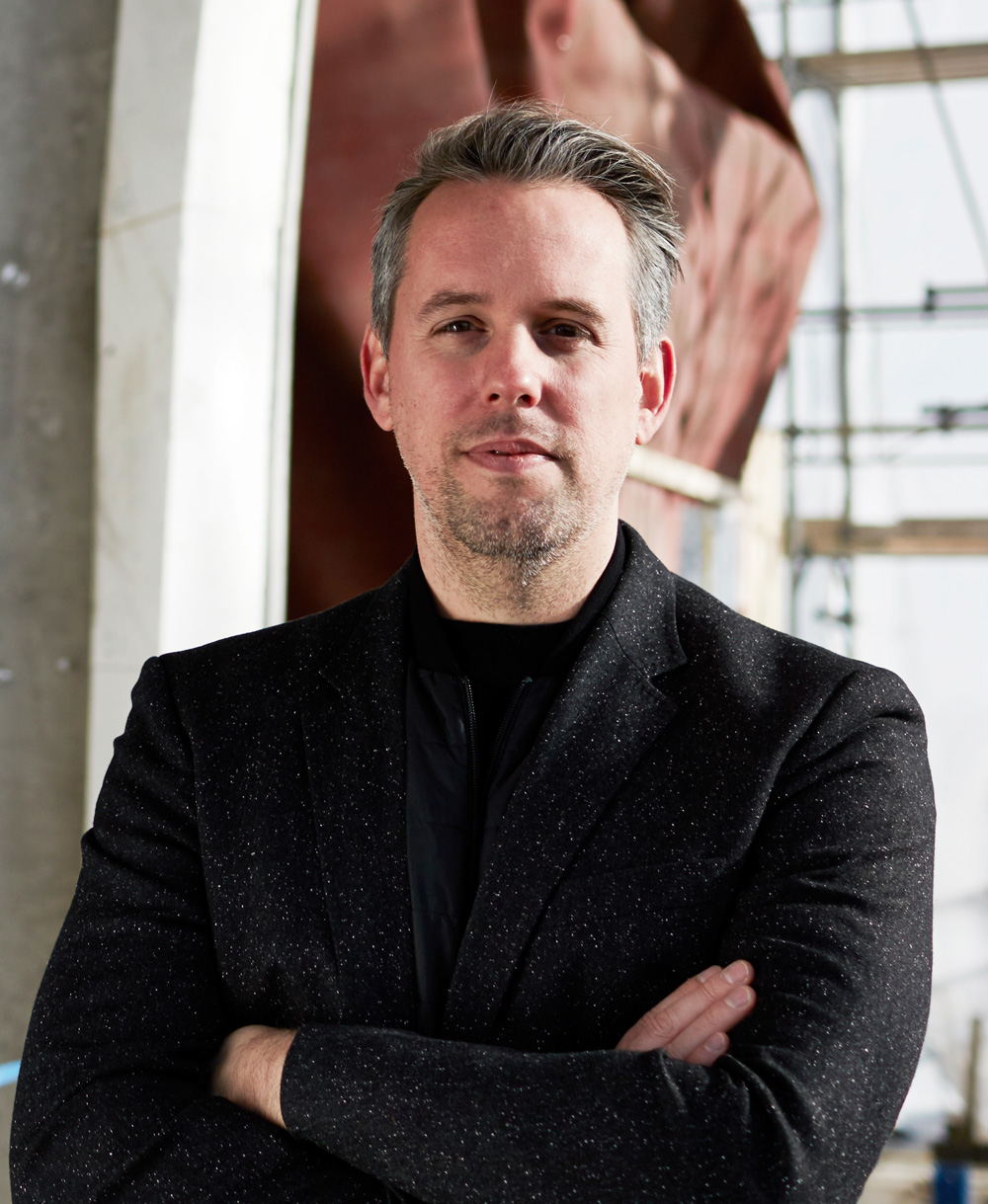
Philippe Block is a full professor at the Institute of Technology in Architecture (ITA) at ETH Zurich, where he leads the Block Research Group (BRG) with Dr. Tom Van Mele and is Head of the Institute. Philippe is also Director of the Swiss National Centre of Competence in Research (NCCR) in Digital Fabrication. He studied architecture and structural engineering at the Vrije Universiteit Brussel (VUB) in Belgium and at the Massachusetts Institute of Technology (MIT) in the US, where he earned his PhD in 2009. He is the recipient of numerous awards, including the Rössler Prize for most promising young professor from ETH Zürich (2018) and the Berlin Arts Prize 2018 for Baukunst.
Registration
For the live event at ZKM
Registration for the event at the ZKM Medientheater is required, as the number of seats is limited. Admission to the ZKM will begin at 9AM on the event day.
Venue:
Zentrum für Kunst und Medien (ZKM)
Medientheater
Lorenzstraße 19
76135 Karlsruhe
For the live streaming
The event will also be livestreamed openly on https://changelab.exchange.
In order to receive training points for participation in the livestream, it is absolutely necessary to verify your participation after the event via filling out the online form that will be available on this website at the day of the event.
